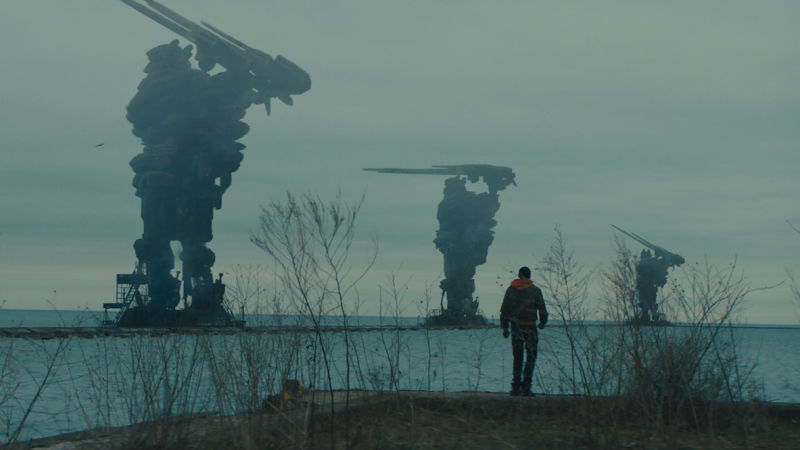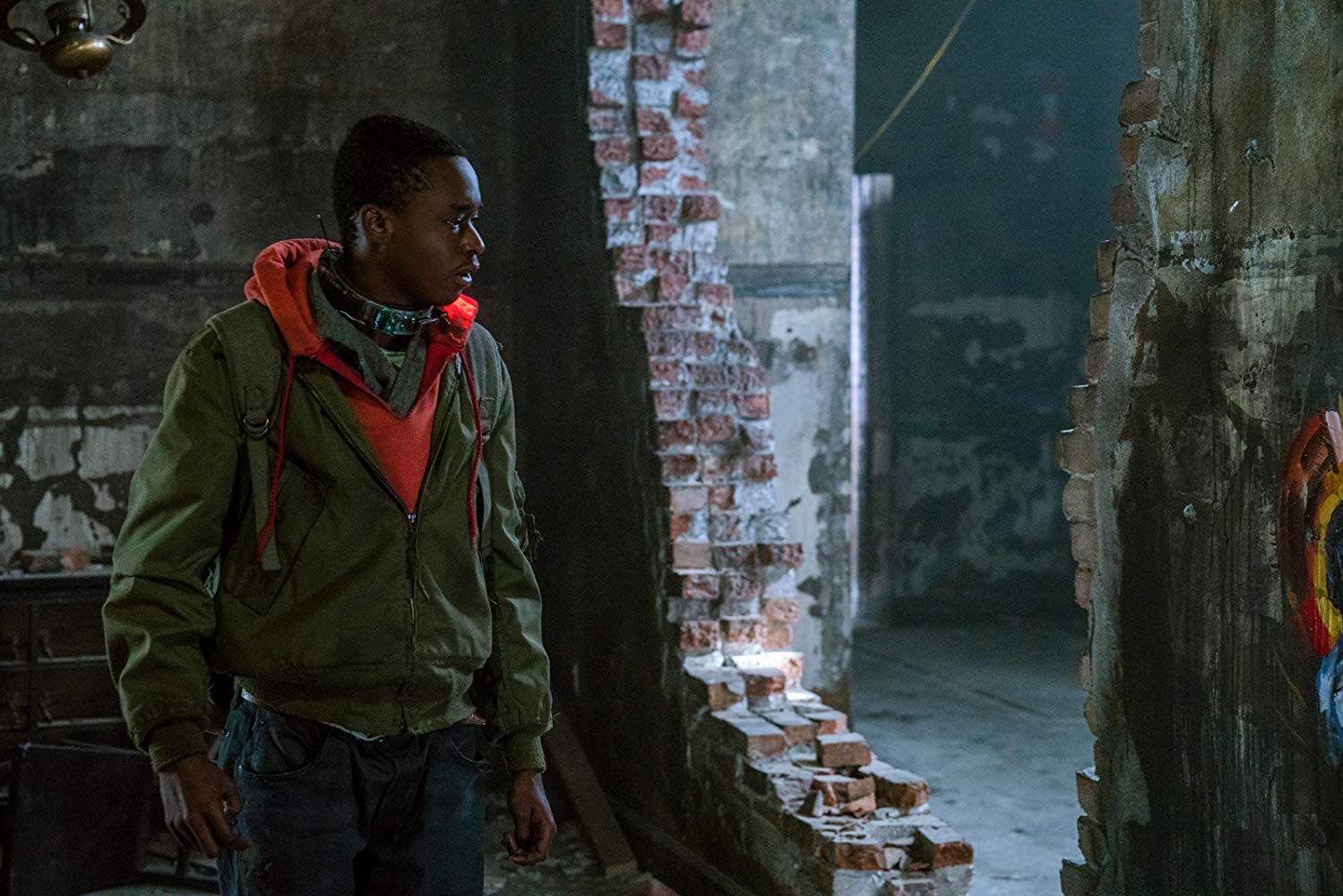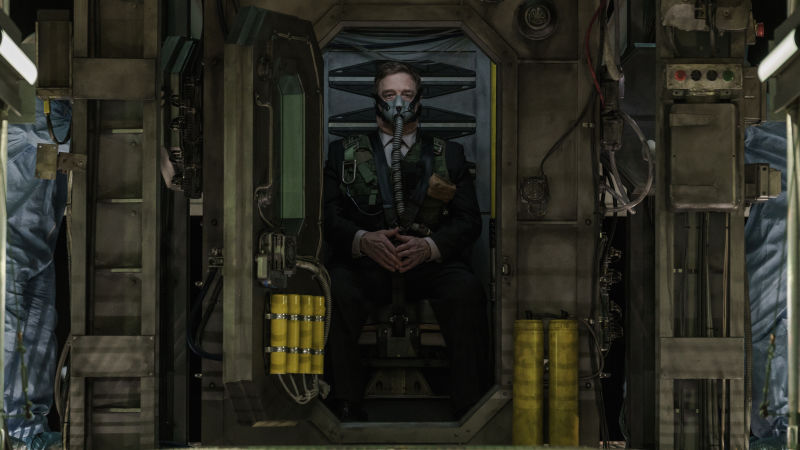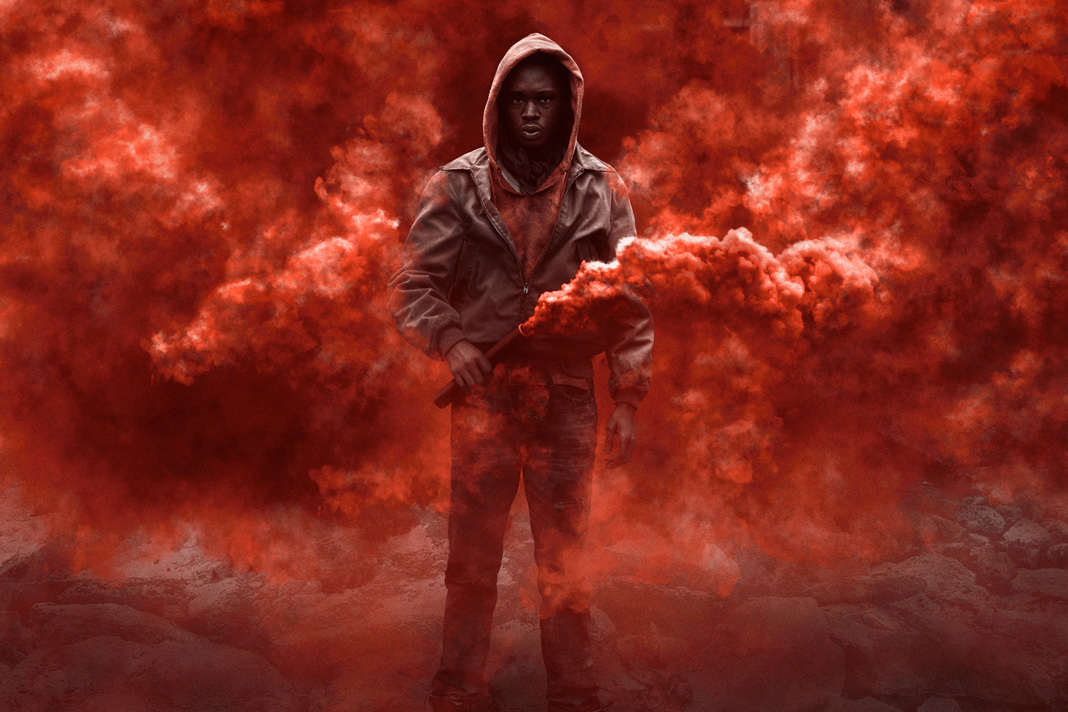Alien invasion is nothing new in the realm of cinema. It’s been a popular subject dating back to H.G. Wells’ “War of the Worlds” in 1898. While most hostile extraterrestrial media deals with the struggle against the aliens itself, Captive State takes much more unique and nuanced approach. It seeks to discover what life would be like under an alien regime that won, while making some very bold social and political statements as well.

Very Different Kind of Science Fiction
The film opens as the nations of the world lay down their arms to the alien invaders in attempt to avoid complete eradication. As this occurs, we see a desperate family attempting to escape Chicago as they dodge a police blockade, as well as the extraterrestrial creatures themselves. Apart from this opening scene, we barely see these intergalactic aggressors. The story jumps nine years in the future to a world where life seems to pretty much carry on. The invaders call themselves “Legislators” as they’ve replaced all branches of government. These legislators have the humans doing their enforcing and dirty work as they remain underground in mines, stripping the Earth of what remains of its natural resources.

The most striking aspect is how quickly humanity has adapted to the new status quo. Much like the film’s title suggests, the citizens of Chicago (along with every other city) remain in an authoritarian state. With the Legislators remaining hidden in the background, it’s other humans who go around policing and spying on the public to keep them obedient. For a science fiction film dealing with alien invasion, there’s a surprising lack of aliens present, which is both an advantage and disadvantage. By not featuring them very much, it leaves a sense of mystery around them. But at the same time, it might be misleading and disappointing to fans who get a gritty political crime drama, rather than a science fiction action adventure.
Making a Bold Statement
Despite dealing with aliens, the film merely uses science fiction as a thinly veiled metaphor about the dangers of authoritarian rule, and the need for liberty at the price of rebellion. As the police force keeps the citizens in check, the human leadership is nothing but a puppet for the Legislators. And all the while they promote propaganda about unity and togetherness, purporting the idea that humanity was flawed and needed to be put in their place for their own good. While most people simply keep their heads down, an underground resistance known as the Phoenix mobilizes to wage war with the extraterrestrial overlords.

At times, it feels like the film is trying a bit too hard to be gritty and stylish, at the expense of pacing and character development. There’s a strong ensemble of actors, including John Goodman, Vera Farmiga, Alan Ruck, and Ashton Sanders. For the most part, their performances are strong, but the story jumps around between them too much to the point that none of them feel like they’re being utilized fully. There’s even a large climactic scene which feels like it should be the climax of the film itself, but it occurs at the halfway point; all just a testament to the messy pacing.
Captive State is nothing if not ambitious. It admirably tries to weave a relevant and compelling social allegory on the dangers of corruption and the importance of freedom. However, it gets lost in its own style from time to time. The film’s ending also shoves a heavy-handed setup for a sequel that lacks any semblance of subtlety. Overall, it boasts strong performances, and perhaps with a little more time devoted to characterization, it could have been achieved excellence. It strives to be great, but ultimately settles for decent.





